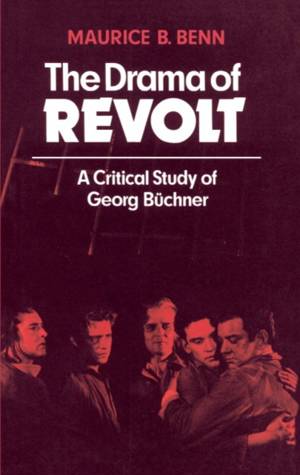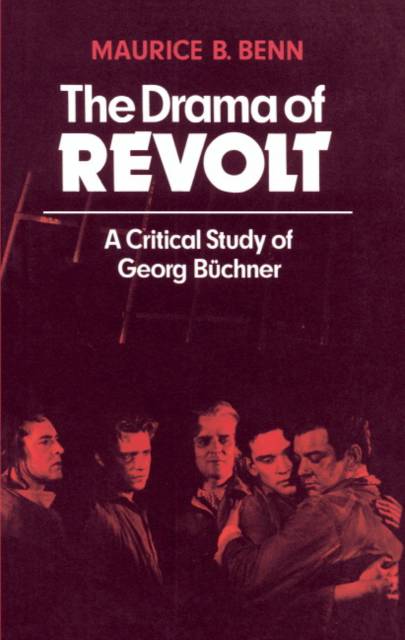
- Afhalen na 1 uur in een winkel met voorraad
- Gratis thuislevering in België vanaf € 30
- Ruim aanbod met 7 miljoen producten
- Afhalen na 1 uur in een winkel met voorraad
- Gratis thuislevering in België vanaf € 30
- Ruim aanbod met 7 miljoen producten
Zoeken
Omschrijving
Georg Büchner is one of the most important dramatists of the nineteenth century, both intrinsically and on account of his enormous influence on the drama of our own time. Professor Benn attempts a comprehensive study of the art and thought of this distinguished writer, emphasising throughout that attitude of revolt which is so characteristic of Büchner. After a brief introduction in which he pinpoints the positive nature of Büchner's revolt and establishes links between his thought and that of Hölderlin and Camus, Professor Benn discusses in the first three theoretical chapters Büchner's revolutionary political principles, his sceptical and iconoclastic philosophical speculations and his fierce attacks on classical theories in art. He then examines each of Büchner's major works - Dantons Tod, Leonce und Lena, Lenz and Woyzeck - analysing the genesis and interpretation of the last in detail. A short concluding chapter summarises the results of the inquiry and assesses the value of the methods used.
Specificaties
Betrokkenen
- Auteur(s):
- Uitgeverij:
Inhoud
- Aantal bladzijden:
- 336
- Taal:
- Engels
- Reeks:
Eigenschappen
- Productcode (EAN):
- 9780521294157
- Verschijningsdatum:
- 28/02/1979
- Uitvoering:
- Paperback
- Formaat:
- Trade paperback (VS)
- Afmetingen:
- 138 mm x 216 mm
- Gewicht:
- 408 g

Alleen bij Standaard Boekhandel
+ 196 punten op je klantenkaart van Standaard Boekhandel
Beoordelingen
We publiceren alleen reviews die voldoen aan de voorwaarden voor reviews. Bekijk onze voorwaarden voor reviews.











